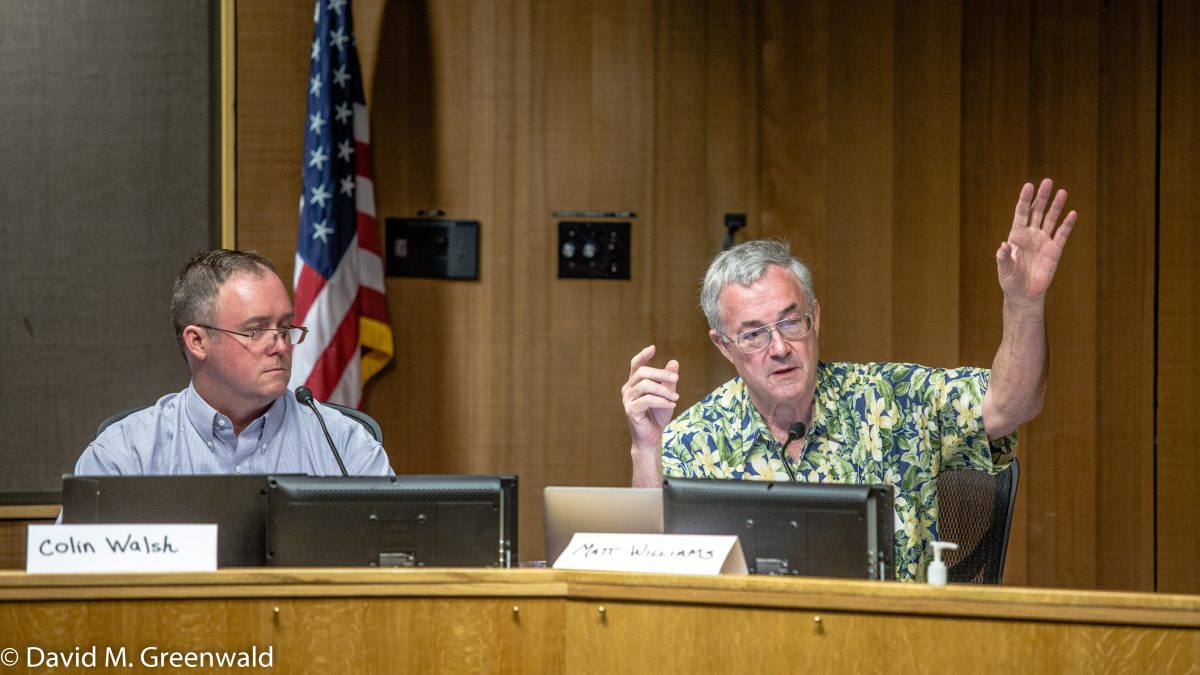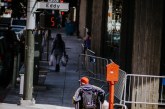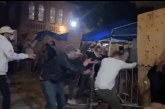
by Matt Williams and Colin Walsh
The Davis Vanguard’s article of May 9, 2018 (“Commentary: Enough with the Weird Red Herrings”) is a disservice to the Davis Community. Instead of addressing the main body of the CivEnergy Measure J Forum (held on May 6 with video below), the Vanguard article goes down a rabbit hole of answers given in response to audience questions.
Let’s start with the basics. As was stated at the CivEnergy forum, there are three main reasons to vote against this project: 1) bad air quality, 2) financial impact, and 3) lack of integrity in the process. Yesterday we addressed reasons 1) and 2). Today we will address reason 3).
Integrity of the City Process: Discuss the process used by the City to place Measure J / Nishi on the June Ballot.
The City’s planning process for this current Nishi project has been co-opted by politics and brinksmanship, and as a result suffers from a woeful lack of integrity.
- The formal review of the Nishi proposal by the City’s Commissions and the public has been rushed into a compressed 4-month timetable that began with the developer’s submission of “a preliminary conceptual site plan” at the Council meeting on October 17, 2017 and ended with Council’s February 6, 2017.decision to put Nishi on the June ballot.
. - As staff told Council in their October 17, 2017 Staff Report, time was of the essence,
-
“The applicants have requested that the proposal be placed on the June 2018 ballot. The schedule would entail action by the current City Council, who are familiar with the site and its planning history. There are no other “Measure R” proposals anticipated at that election.”
- Analyses presented to city Commissions have been rushed and incomplete. For example, the Finance and Budget Commission formally stated the following in their January Recommendation to Council:
-
”At the time of this analysis, the commission did not have available to it a complete and detailed description of the project, a supplemental environmental analysis, or a development agreement with the city. Therefore, any conclusions we have reached should be considered preliminary and subject to change.
We generally concur with the estimate that annual ongoing revenues and costs for the city from the project would be modestly net positive over time.
A development agreement for the project could include important fiscal provisions, such as a Community Services District assessment, community enhancement funds, and the potential refund of the city’s pre-development costs should the new project be approved by voters.
We recommend that the commission, or if necessary an FBC subcommittee, be provided a timely opportunity to review and comment on the fiscal provisions of the proposed development agreement before its presentation to City Council for approval.”
- No such review of the Development Agreement by the FBC has ever taken place.
. - The developer continues to refuse to perform of on-site air quality testing, while at the same time spending (so far) five times as much money on election advertising and election canvassing activities as the cost of air quality testing would entail.
. - There has been no disclosure of what level of financial contribution UCD will be making to the project. An open and transparent place to start would be a simple table comparing the dollars and resources UCD has spent on West Village to the dollars and resources UCD has committed to the Nishi 2018 project … especially since UCD is the party that benefits most if/when the project goes forward. Without UCD explicitly at the table it was a three legged stool with only two legs present.
. - The “Yes on Measure J” ballot argument overstates of the net one-time benefit by at least $10 million and overstatement of the City’s additional property taxes each year by more than $2.25 million each and every year. Add those two numbers together and you get a $35 million total overstatement over the life of the City’s New Development model for Nishi.
.- The one-time benefit of over $11 million argument conveniently ignores the one-time expenses that almost completely offset/use-up the one-time revenues.The “net” one-time revenue impact of Nishi 2018 is more than zero and less than $1 million dollars. Under the provisions of California Law the amount of Development Impact Fees that a jurisdiction can collect cannot exceed the reasonably estimated amount of incremental development impact costs incurred by the jurisdiction due to the new development. To say that the one-time revenues is General Fund “money that can be used for parks, roads and other city needs”Is wrong.
. - The $2.5 million of additional Property Taxes to the City argument ignores the City’s 15-year financial model for Nishi presented to the FBC, which shows annual Property Tax revenues that range from a low of $187,451 to a high of $228,502. That is more than 10-times lower than the $2.5 million that is being claimed in the Argument in Favor of Measure J. The City’s model can be accessed at http://documents.cityofdavis.org/Media/Default/Documents/PDF/CityCouncil/Finance-And-Budget-Commission/Agendas/20180108/Item-6B—Fiscal-Model-2017-18-Update—new-model-Nishi-700-units-2200-DUE.pdf
- The one-time benefit of over $11 million argument conveniently ignores the one-time expenses that almost completely offset/use-up the one-time revenues.The “net” one-time revenue impact of Nishi 2018 is more than zero and less than $1 million dollars. Under the provisions of California Law the amount of Development Impact Fees that a jurisdiction can collect cannot exceed the reasonably estimated amount of incremental development impact costs incurred by the jurisdiction due to the new development. To say that the one-time revenues is General Fund “money that can be used for parks, roads and other city needs”Is wrong.
- The Ballot Argument authors have made no effort to acknowledge, explain or correct the misleading overstatements, despite having been made aware of them. Their one and only one statement to date, when asked is “Your reading of our statement is wrong.” Perhaps they don’t care whether they are misleading the public.
Conclusion
Given the significant concerns about air quality, and the lack of balance and transparency of the Nishi 2018 fiscal analysis when compared to the Nishi 2016 fiscal analysis, coupled with the clear problems with the ballot statement, anyone who believes in honesty should cast an honest “No” vote on Measure J.






Honesty? Matt needs to turn and look to his right. Nishi 2.0 is a product of Matt’s No On Nishi allies. Nishi 1.0 was a superior project that was subjected to a massive disinformation campaign. The community is the worse for it. The developer has now made the decision to dumb down the project to overcome opposition in order to get the project approved. This happens all the time with projects (Hyatt House is a great example). The developer is not to blame. The city is not to blame. The blame lies with the opposition who have made it abundantly clear that they will oppose any project on the site (other than a solar farm).
Michael, there is plenty of blame to go around. The Yes on Measure A campaign was its own worst enemy. Yes on Measure A lost the election much more than No on Measure A won it … which was a foreshadowing of the Presidential Election the following November, where the Democratic Party lost the election as opposed to the Republican Party winning it.
One of the principles of a democracy is that each person has the opportunity to stand up and be counted. Each individual has their decision drivers. Last night at the Finance and Budget Commission we received a presentation from staff on the City Manager’s FY 2018/19 Proposed Budget which included the summary slide below, which speaks volumes about both our City processes and our City finances. In what alternative universe/reality does it make sense to be presenting a Proposed Budget that shows a $16 million deficit ($16 million more Expenditures than Revenues)?
Einstein described insanity as “doing the same thing over and over again, and expecting a different outcome.”
To head off any “he said, she said” distractions, the courts have ruled that a number of opposition claims regarding Nishi 1.0 were not based in fact (e.g. traffic, affordable housing requirements).
Just wanted to thank Matt again, for bringing these issues to our attention.